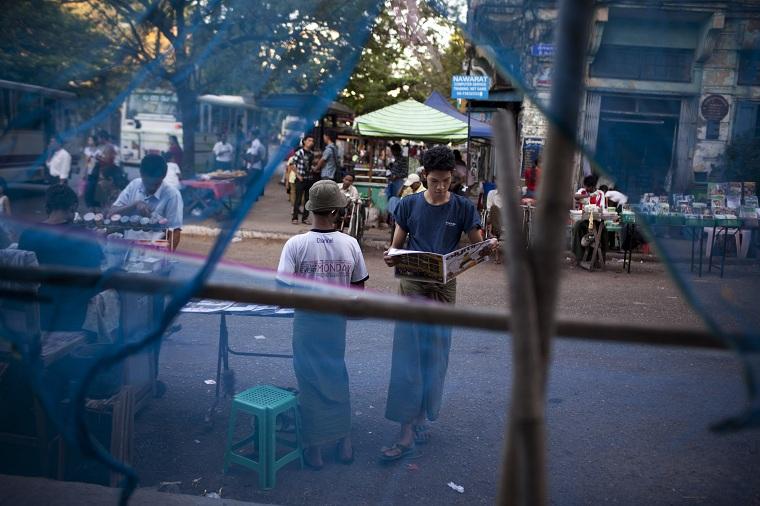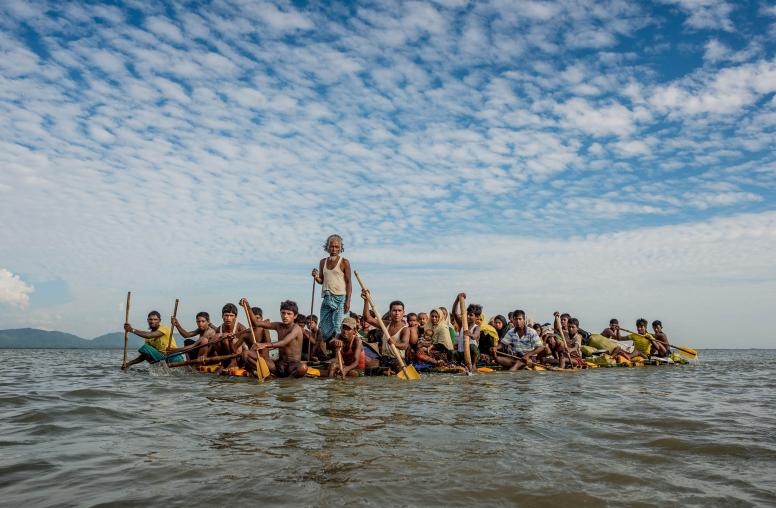On the Road to the Rule of Law in Burma
Colette Rausch writes on the road ahead in Burma and the reforms it will take to make a successful transition from virtual isolation to becoming a full-fledged member of the international community.

Washington, D.C. - Over my career, I’ve worked in any number of countries emerging from war or conflict, struggling to trade a totalitarian existence for democratic processes and international standards of the rule of law. Most recently, I traveled to Burma, just as the U.S. announced that it was opening a door to a new era of diplomatic relations with Rangoon. At the same time, the Karen rebels agreed to a ceasefire, ending years of fighting. This is how I think about what lies ahead for the Asian nation.
After a few days of consultations in the bustling port city of Yangon, Burma’s former capital, we departed for Burma’s sparkling new capital city, Naypyidaw. During the six hour drive, I counted down the oddly-shaped kilometer markers lining the country’s modern highways until we reached Naypyidaw, a city essentially built from scratch about five years ago.
It was here that the parallels to the transformation the country is now undergoing as it flirts with democracy were impossible to ignore. The next day, as we drove from ministry building to ministry building, I noticed a massive, 12-lane roadway encircling one of the buildings. In fact, this improbably large road, seemingly built with a much bigger vision in mind, was virtually empty, save for our own vehicle, alone, in a vast sea of pavement. As we drove along, it struck me that, clearly, this country had high aspirations for its future. The buildings and infrastructure were immaculate —yet nearly empty. Now it is a ghost town of modernity, as if awaiting the dawning of a new day.
After 30 years of isolation following the military takeover of its civilian government, the country has expressed an eagerness to rejoin the world community through democratic reform and promotion of individual freedoms. And the large road is just one lens through which we can see this expansive vision. As they venture down this promising but uncharted road, a few thoughts on some of the avenues -- and roadblocks -- that could lay ahead:
The need to build trust and deliver reforms. After years of suppression of political opponents and dissent, as well as armed conflict between the Burmese army and its varied ethnic groups, the new government will need to gain the trust of the Burmese people as a whole. Trust-building through concrete positive actions will be crucial since, as one person said of past promises of reform: “Our hopes have been dashed in the past, and at times, brutally.” By incrementally delivering reform, instilling confidence with each tentative step forward, the steady progress they make will help build stability within a country of people striving to strengthen their trust in the new government.
Engaging in an inclusive, transparent and strategic reform process is essential. It is critical to take an inclusive approach, including all stakeholders, in all communities, to making decisions along the road to reform. This approach, together with the development of a clear and concise reform plan, will help build a solid foundation of good governance and encourage constructive, well thought-out reforms.
Infusing new institutions like the police, judiciary and other organizations with the values of the Burmese people will take time. The road to true reform in any country in which authoritarianism has been the rule is seldom a quick one. Change in Burma will take many years. However, it is crucial that broad decisions outlining legal reform and governance issues be made in the near term. In that way, the new government can begin simultaneously reforming for the long term as it also builds confidence among the Burmese in the short term.
Legal reform, traditional values and the role of the state: all about balance. Legal reform does not happen in a vacuum and is not merely a technical exercise of drafting laws. Accordingly, it will be important for the new government to balance its political, economic and legal reform initiatives in a way that reflects Burma’s historical values and considers its past attempts at reform. This will be of particular concern when it begins to address governance and the relationship between the state and various regions and communities.
I am well aware of the challenges and pitfalls that lie in wait along the road to democracy. But I left Burma with buoyed hopes. Paraphrasing the words of a youth activist I met while there, I get a feel for the cautious optimism I experienced across the country: “I am optimistic, but I am also a realist.” If Burma continues its efforts to forge a middle ground, building upon the positive steps that have been so clearly evident over the past few weeks, it can be a model of reform and political transformation. And a welcome member of the international community.
Watch a slide show of Colette's trip to Burma:



